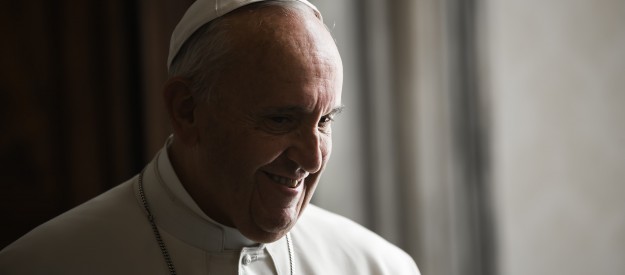"We are losing our attitude of wonder, of contemplation, of listening to creation and thus we no longer manage to interpret within it what Benedict XVI calls 'the rhythm of the love-story between God and man.'"
+ Pope Francis
Fratelli Tutti: Two unexpected takeaways for Catholic Ecologists

The apologies of the Church Fathers were written to explain Christianity to a hostile world. As I read Fratelli Tutti—released on the Feast of St. Francis—the style and intent of those ancient documents came to mind over and over. I couldn’t shake the sense that Pope Francis is offering his latest encyclical as an explanation and defense of his methods and goals, doing so for both outsiders but perhaps more so for those of us in his flock, especially his most vocal critics.
That said, there are two key takeaways for Catholic ecologists that go beyond Fratelli Tutti's intimate connection with the eco-encyclical Laudato Si’.
The first is its catechetical foundation.
In his letter to all humanity (which is the Italian inference of the word Fratelli), Pope Francis presents the scriptural basis for Christianity’s radical understanding of love of neighbor. It's as if he's building a case—or, perhaps, a defense—rather than simply instructing the faithful and those of other faith traditions.
Masterfully and lovingly taught, Pope Francis goes about this instruction not with mere snippets of scripture or by relegating scriptural passages to the endnotes. Rather, he places lengthy citations directly into the text, especially Luke’s parable of the Good Samaritan, which becomes a hermeneutical key for the rest of the document.
It’s as if the Holy Father feels the need to explain his papacy by reminding us all, his critics especially, of the scriptural basis of all he and the Church hold dear. It's as if he's saying: "Look, here, in the Gospels. See? Christ said this. I'm not making this up."
It's all quite extraordinary and there is indeed something to be learned, which we'll get to after considering a second, related takeaway: his desire that he be understood. Well, perhaps a better way to say this is that he desires his flock to appreciate his pastoral style and focus—and why they are what they are.
“Issues of human fraternity and social friendship have always been a concern of mine,” he writes in Fratelli Tutti’s opening. “In recent years, I have spoken of them repeatedly and in different settings. In this Encyclical, I have sought to bring together many of those statements and to situate them in a broader context of reflection.” (FT 5)
If one of the criticisms against Francis’s papacy is his often off-the-cuff comments and his seemingly erratic focus, Fratelli Tutti reads as if he wishes to answer his critics—to answer them and comfort them all while remaining steadfast with his bold and consistent statements on what it means to love neighbor. (This, by the way, is very much consistent with Francis's immediate predecessor, who wrote back in the 1950s that a Church that seeks peace in the future is "obliged to love in the present.")
In all, Fratelli Tutti is one of the most personal papal teaching documents of the modern era.
Yes, the encyclical speaks of issues important to those of us seeking to protect the planet, its ecologies, and its peoples. And it offers prudential answers to those concerns, which a reader may or may not agree with,
But I would suggest that it is Francis’s catechetical approach and his yearning for understanding that can help Catholic eco-advocates do our jobs better.
What do I mean by that?
If we truly want to reach out to and work with our Christian brothers and sisters who do not share our concerns for environmental protection, we would do well to follow Francis’s lead. We must connect the revealed truths of scripture with our concerns and our prudential proposals for a cleaner planet—and we must do so in ways that seek a true relationship with those with whom we disagree.
“In the world of that time,” Pope Francis writes of his namesake, “bristling with watchtowers and defensive walls, cities were a theatre of brutal wars between powerful families, even as poverty was spreading through the countryside. Yet there Francis was able to welcome true peace into his heart and free himself of the desire to wield power over others. He became one of the poor and sought to live in harmony with all. Francis has inspired these pages.” (FT 4)
And may Francis—the saint and the pontiff—inspire us in our work to care for our common home by first loving God and neighbor, and doing so in the truest, most radical Christian sense possible. Even if that means loving and dialoguing with polluters, politicians, and all those who scoff at our eco-concerns—perhaps even allowing that dialogue to help us overcome the animosity and the distrust that serve no one but our ancient enemy.
And so, let us pray the words offered by the Holy Father:
Grant that we Christians may live the Gospel,
discovering Christ in each human being,
recognizing him crucified
in the sufferings of the abandoned
and forgotten of our world,
and risen in each brother or sister
who makes a new start.
Saint Francis of Assisi, pray for us!


















